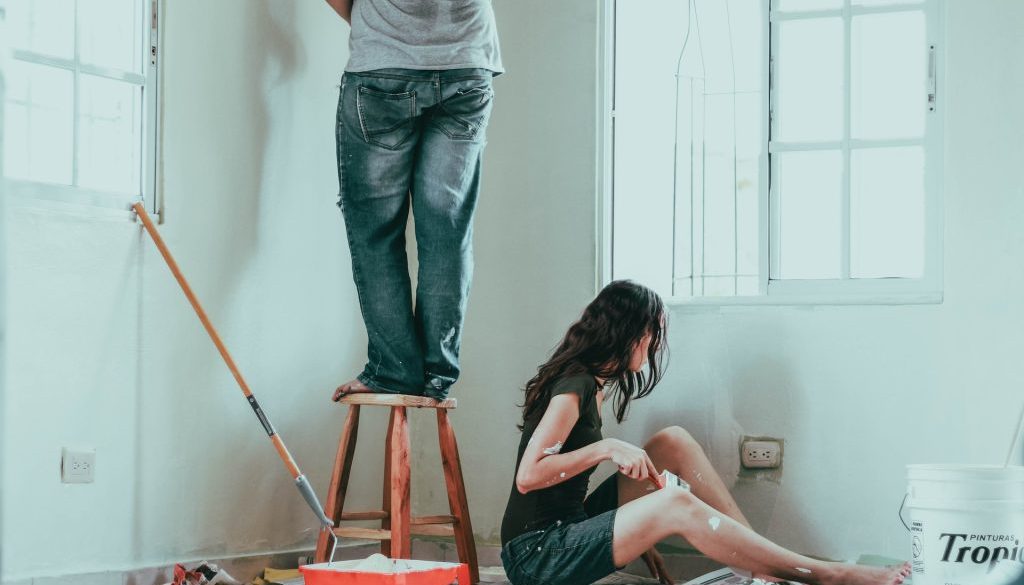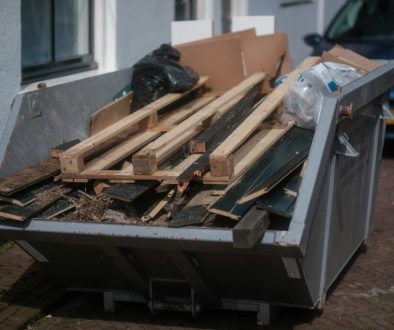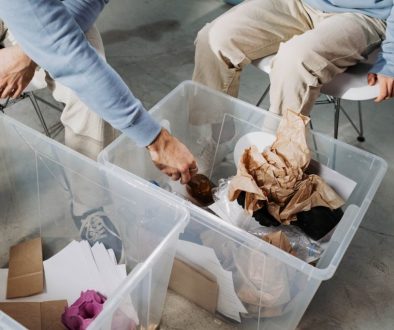As a homeowner, undertaking a DIY home renovation can be an exciting and rewarding experience. However, along with the transformative changes and improvements comes the inevitable generation of waste materials. Managing waste responsibly during your DIY project is crucial for adhering to environmental regulations, promoting sustainability, and ensuring a safe and efficient renovation process. In this blog post, we will guide you through the basics of responsible waste management during your DIY home renovation, providing practical tips on waste reduction, recycling, and skip hire services.
Effective waste management begins with a well-considered plan, taking into account the estimated volume of waste, the types of materials involved, and the appropriate disposal methods for each waste category. Waste reduction and recycling should be prioritised to minimise the environmental impact of your renovation, while partnering with a reputable skip hire provider like Enviro Skip Hire ensures responsible and convenient waste disposal.
In the sections that follow, we will explore key factors to consider as a DIY home renovator aiming for responsible waste management, including waste reduction strategies, recycling opportunities, and practical guidelines for hiring a skip. Equip yourself with the knowledge and insights shared in this guide to enjoy not only a visually transformed home but also a renovation project that has been executed with conscientious waste management.
A Beginner’s Guide to Responsible DIY Home Renovation Waste Management
1. Waste Reduction Strategies for DIY Home Renovations
Minimising waste generation during your DIY home renovation project is a crucial step towards responsible waste management. Here are some waste reduction strategies to consider:
- Plan Carefully: Accurate planning, including material measurements and project timeline, can significantly reduce waste generation by avoiding over-purchasing and excessive demolition.
- Reuse and Repurpose: Salvage existing materials or fixtures where possible, either for reuse within your home or donation to community recycling initiatives.
- Source Sustainable Materials: Opt for sustainable, reclaimed, or recycled materials to minimise the environmental impact of your renovation project.
2. Recycling Opportunities for Home Renovation Waste
Recycling is an essential component of responsible waste management, helping to divert waste from landfills and conserve valuable resources. Consider the following opportunities for recycling during your DIY home renovation:
- Segregate Waste: Separate waste materials into recyclable categories, such as wood, metal, glass, and plastic, to facilitate efficient recycling.
- Research Local Recycling Facilities: Investigate recycling centres and facilities in your area, as well as any specific requirements for waste drop-off or collection.
- Utilise Waste Exchange Networks: Explore online waste exchange networks, which facilitate the sharing, repurposing, or recycling of construction and household waste materials within a local community.
3. Hiring a Skip for Responsible Waste Disposal
Engaging the services of a reputable skip hire provider like Enviro Skip Hire is an invaluable component of responsible waste management during a DIY home renovation:
- Choose the Right Skip Size: Accurately assess the volume of waste that your project will generate, and select an appropriate skip size to accommodate this without under or overestimating the capacity required.
- Partner with a Reputable Skip Hire Service: Choose a skip hire provider with a commitment to responsible waste disposal, adhering to regulations and supporting sustainable waste management practices.
- Understand Restricted Items: Familiarise yourself with any items that are not permitted in skips, such as hazardous materials, tyres, or electrical equipment, and consult your skip hire provider for guidance on alternative disposal methods for these materials.
4. Legal Considerations and Compliance for DIY Home Renovation Waste Management
Adhering to waste disposal regulations and best practices is critical for preventing potential legal complications and demonstrating a commitment to environmental responsibility:
- Obtain Necessary Permissions: If placing a skip on a public highway, ensure you have obtained the appropriate permits from your local council and comply with any restrictions, such as parking or access requirements.
- Follow Waste Disposal Regulations: Understand the legal responsibilities and regulations regarding waste disposal, and collaborate with a reputable skip hire service to ensure compliance in managing your home renovation waste.
- Properly Dispose of Hazardous Waste: Certain types of waste, such as asbestos, require specialised handling and disposal methods. Consult with an expert to ensure hazardous materials are managed and disposed of responsibly, in accordance with relevant regulations.
Conclusion
Managing waste responsibly during your DIY home renovation project is not only crucial for complying with regulations, but it also contributes to a more sustainable construction and renovation industry. By implementing waste reduction strategies, embracing recycling opportunities, and partnering with a reliable skip hire service like Enviro Skip Hire, you can enjoy a successful home renovation project that is both visually appealing and environmentally responsible.
Applying the practical insights and guidelines shared in this beginner’s guide will empower you to make informed decisions regarding waste management during your DIY home renovation. Embrace the principles of waste reduction, recycling, and responsible disposal to create a transformed living space that you can be proud of, knowing that you have contributed to the promotion of sustainable and eco-friendly building practices.




